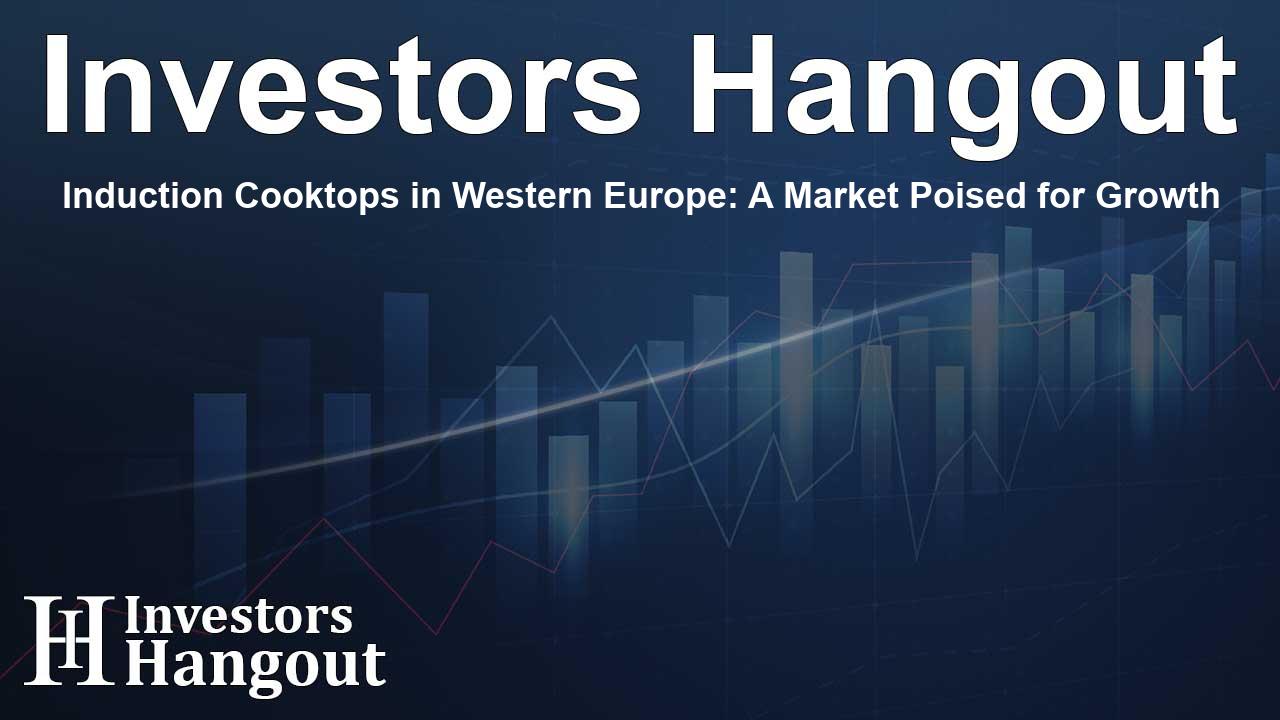Induction Cooktops in Western Europe: A Market Poised for Growth

Induction Cooktop Market Growth in Western Europe
As energy costs soar, especially in countries like Germany and France, the shift from traditional cooking methods to induction cooktops has gained substantial momentum. The Western Europe induction cooktop market, valued at approximately US$ 11.64 billion recently, is forecasted to reach an impressive US$ 23.99 billion by 2033, indicating a significant compound annual growth rate (CAGR) of 8.60%. This transition not only reflects changing consumer preferences but also a greater emphasis on energy efficiency in households.
Consumer Shifts Driven by Energy Prices
With electricity prices hitting around €0.39 per kilowatt-hour, many households are seeking ways to reduce their monthly bills. Induction cooktops, known for their efficiency, are quickly replacing older gas and electric hobs in kitchens across the region. In fact, retail sales of induction cooktops surged to 5.2 million units in just one year, up from 3.3 million three years prior, as consumers become more educated about energy savings and cooking efficiency.
The Role of Builders and Landlords
The trend isn’t limited to residential consumers. Builders and landlords are also embracing induction technology. Reports indicate that over 310,000 new apartments in several countries are now equipped with induction cooktops as a standard feature. Local policies and grants further incentivize this trend, allowing residents to recoup costs much faster — notably within four years on average. This convergence of market forces is driving adoption.
Innovation and Design Trends
Innovation plays a crucial role in the appeal of induction cooktops. Manufacturers are introducing advanced features that enhance user experience. Today, smart induction cooktops equipped with Wi-Fi and mobile app controls are becoming increasingly popular. Notably, these appliances enable remote cooking scenarios, allowing homeowners to control their kitchen from afar, thereby enhancing convenience.
Compact Designs for Urban Living
With urban spaces shrinking, the demand for more compact and versatile cooking solutions is rising. Modular induction cooktops, often as small as 30 centimeters, cater to this growing need while maintaining high performance. Such compact designs are perfect for small kitchens, making them an attractive option for renters and city dwellers.
Safety Standards and Regulatory Impacts
The regulatory environment in Western Europe is fostering innovation and ensuring safety. Recent ecodesign mandates and safety standards necessitate that manufacturers adhere to strict guidelines, enhancing the safety and efficiency of induction cooktops. For instance, new safety protocols are being instituted that require designs to incorporate advanced features to ensure user safety, substantially reinforcing consumer confidence in these products.
Competitive Strategies in the Market
As competition heats up among major players like Bosch, Siemens, and Electrolux, companies are differentiating themselves through innovative services and sustainability efforts. Comprehensive warranties and customer-centric support services are emerging as key factors influencing consumer choice. Furthermore, sustainability initiatives are addressing consumer concerns about environmental impacts, paving the way for a greener cooking landscape.
Future Prospects and Economic Factors
The induction cooktops market is poised for continued growth, driven by shifts toward renewable energy sources and sustainable practices. The increasing integration of solar energy into households aligns perfectly with the adoption of induction cooking, as it allows homeowners to use clean energy efficiently while reducing reliance on fossil fuels. As regulations continue to evolve, manufacturers and consumers alike will benefit from innovations that prioritize both performance and the environment.
Frequently Asked Questions
What drives the growth of induction cooktops in Western Europe?
The primary factors include rising energy costs, a focus on energy efficiency, and innovative technologies that enhance user experience and convenience.
How do induction cooktops compare to traditional cooking methods?
Induction cooktops are generally more energy-efficient than traditional gas or electric hobs, heating pots and pans directly for faster cooking times and reduced energy consumption.
What are some innovative features of modern induction cooktops?
Many modern induction cooktops come with smart technology, allowing for remote control, app integration, and voice commands, making cooking more flexible and user-friendly.
How is the market responding to safety and regulatory standards?
Manufacturers are adapting quickly to new safety regulations, ensuring that their products not only meet high safety standards but also deliver enhanced features that promote user safety.
What is the significance of sustainability in the induction cooktop market?
Sustainability is becoming a significant factor as companies integrate eco-friendly practices into their manufacturing processes, meeting consumer demand for environmentally responsible products.
About The Author
Contact Logan Wright privately here. Or send an email with ATTN: Logan Wright as the subject to contact@investorshangout.com.
About Investors Hangout
Investors Hangout is a leading online stock forum for financial discussion and learning, offering a wide range of free tools and resources. It draws in traders of all levels, who exchange market knowledge, investigate trading tactics, and keep an eye on industry developments in real time. Featuring financial articles, stock message boards, quotes, charts, company profiles, and live news updates. Through cooperative learning and a wealth of informational resources, it helps users from novices creating their first portfolios to experts honing their techniques. Join Investors Hangout today: https://investorshangout.com/
The content of this article is based on factual, publicly available information and does not represent legal, financial, or investment advice. Investors Hangout does not offer financial advice, and the author is not a licensed financial advisor. Consult a qualified advisor before making any financial or investment decisions based on this article. This article should not be considered advice to purchase, sell, or hold any securities or other investments. If any of the material provided here is inaccurate, please contact us for corrections.
